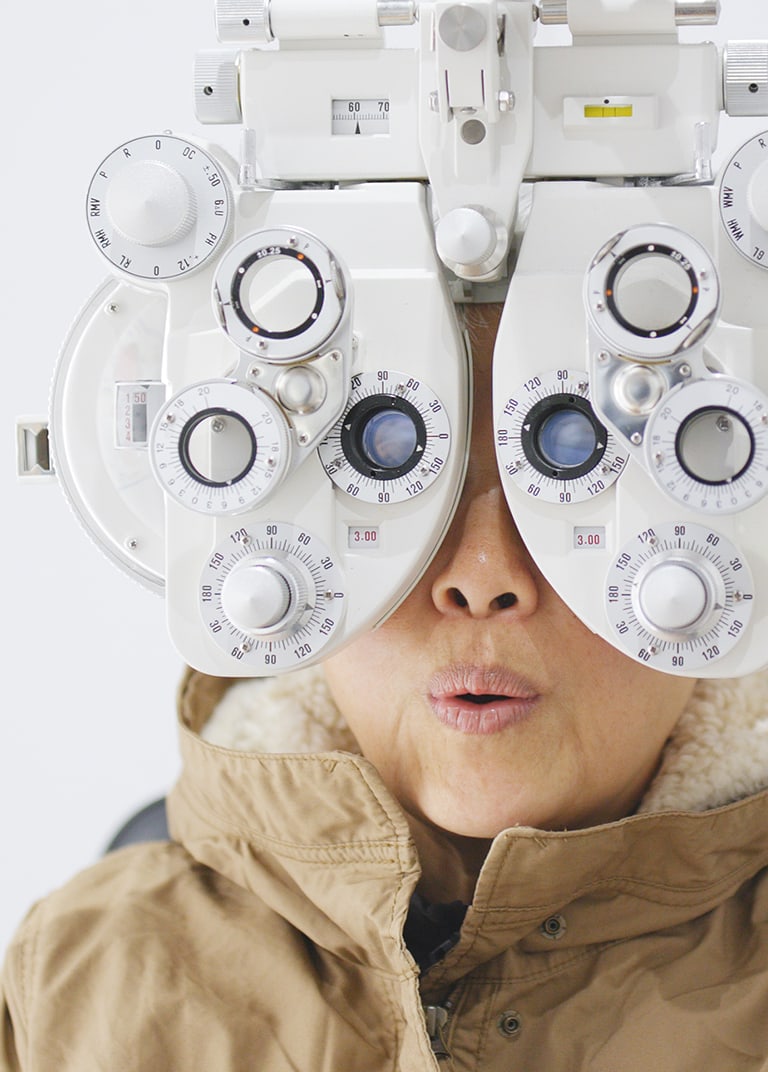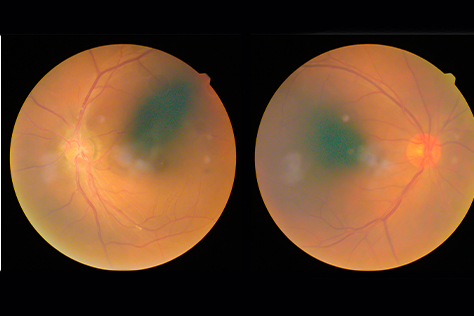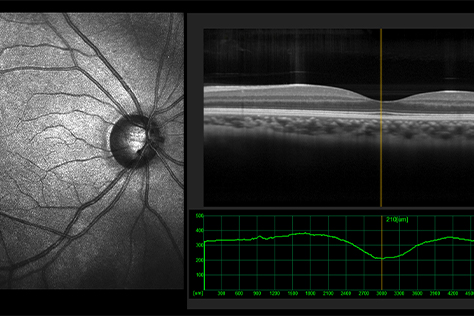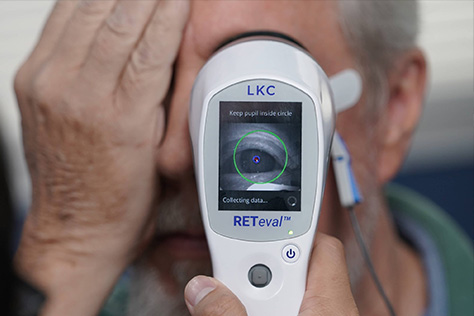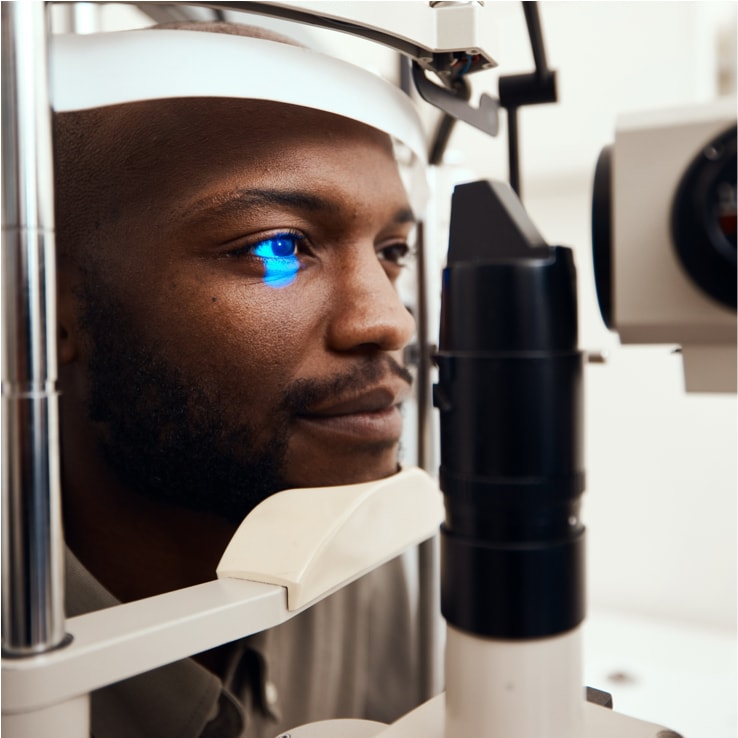Areas Commonly Evaluated in an Eye Exam
- Retina: The thin layer at the back of your eye that senses light and sends signals to your brain.
- Macula: The center part of the retina that lets you see fine details, read, and recognize faces.
- Optic Nerve: The “cable” that carries visual information from your eye to your brain

Vision Care for Patients Living with Diabetes
Maintaining eye health is an important part of overall well-being, especially for those managing diabetes. We offer comprehensive diabetic eye exams using modern technology and a deeply personalized approach.
We’re here to help you protect your vision, detect potential issues early, and support your long-term health. Diabetes can affect the eyes without obvious symptoms, which is why regular exams are so important.
At Grove Eye Care, we use advanced technology to monitor your eye health, catch potential concerns early, and create a care plan that fits your needs. Whether you’re newly diagnosed or have been managing diabetes for years, our team is here to provide thorough, compassionate care every step of the way.
Let’s protect your vision together. Schedule your diabetic eye exam today.
Request AppointmentHow Often Do You Need a Diabetic Eye Exam?
The American Diabetes Association recommends a comprehensive eye exam at least once a year. More frequent visits may be necessary if early signs of diabetic retinopathy or other complications are detected.
We tailor your exam schedule based on your individual risk factors and findings. Annual diabetic eye exams are one of the most effective ways to detect complications early and take action before your vision is affected.
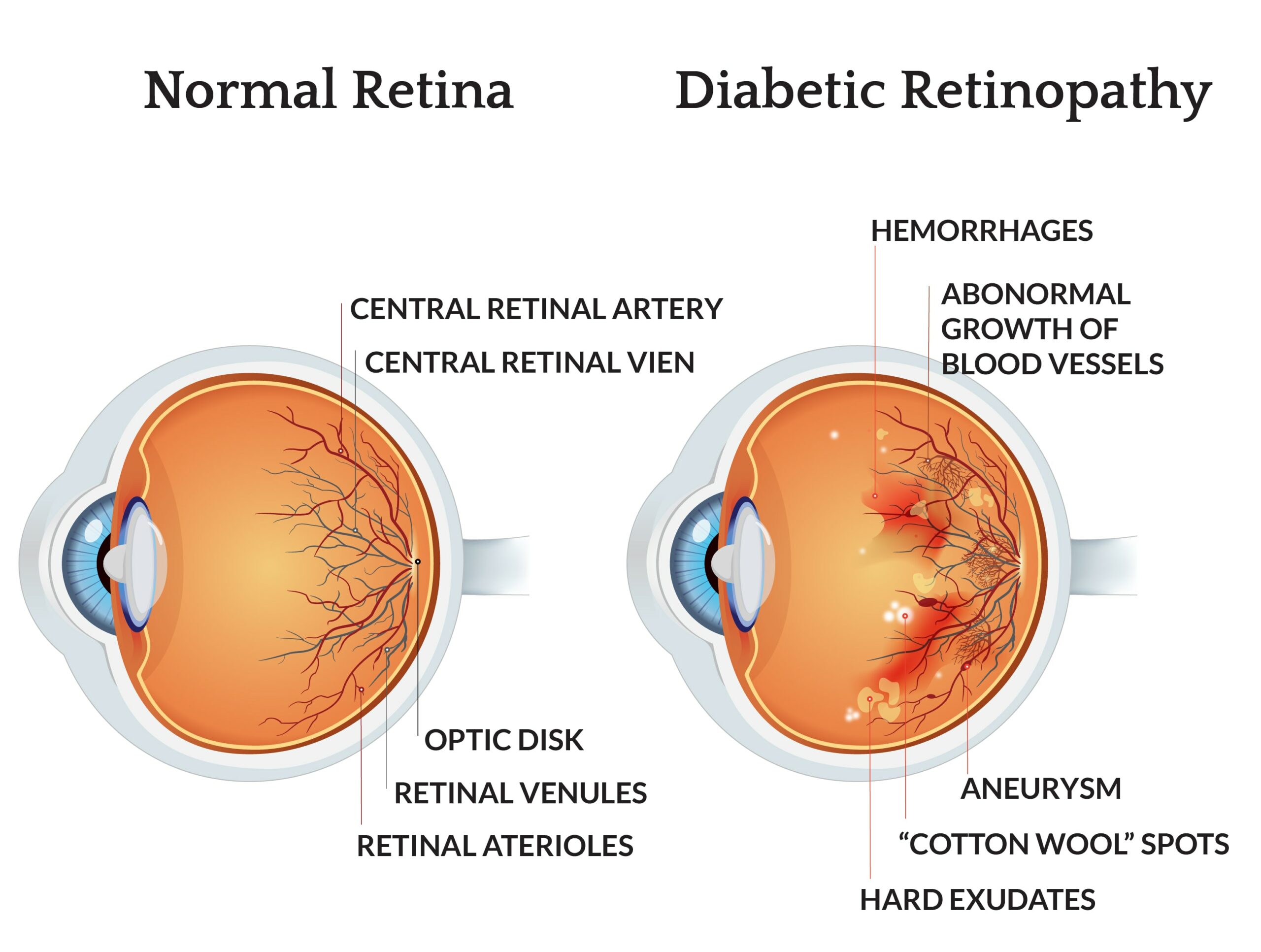

Why Diabetic Eye Exams Are So Important
Diabetes can damage the delicate blood vessels in your eyes, leading to conditions and diseases like:
- Diabetic retinopathy
- Diabetic macular edema
- Cataracts
- Glaucoma
At Grove Eye Care, we don’t just check your prescription. We evaluate the entire structure of your eyes, including the retina (the back of the eye), the macula (the part of your retina responsible for sharp, central vision), and the optic nerve, to catch subtle changes early.
Our Diabetic Eye Exam Technology
Our technology provides us with clearer images and insights, allowing us to act early. We use modern diagnostic tools to evaluate and monitor your eyes with incredible accuracy and comfort.
Protect Your Vision & Prioritize Your Health
Living with diabetes requires you to be proactive, and when it comes to your vision, that starts with a trusted, comprehensive eye exam. We’re here to make the process easy, comfortable, and tailored to your unique needs. Schedule a diabetic eye exam with us today!
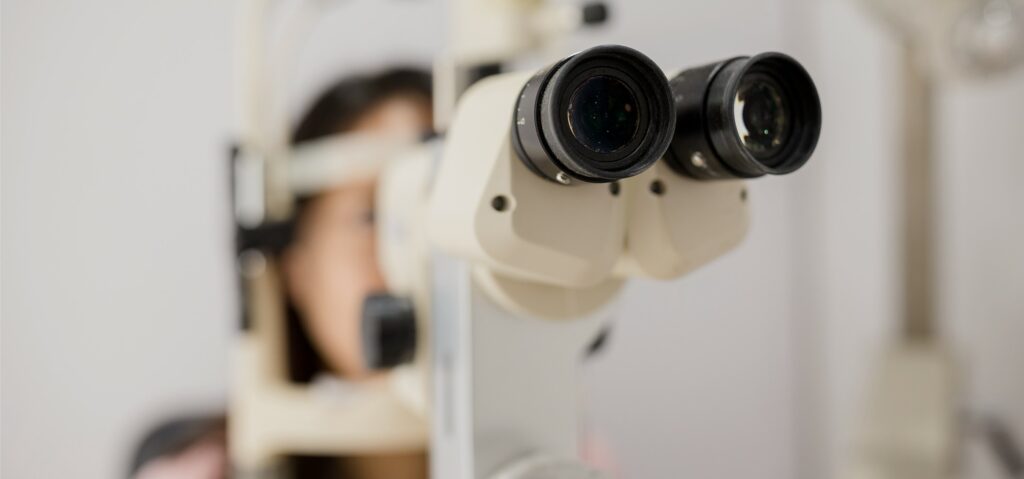
Richmond
Our Address
- 3601 Grove Ave
- Richmond, VA 23221
Contact Information
- 804-353-3937
- 804-358-1395
- frontdesk@groveeyecare.com
Hours of Operation
Midlothian
Our Address
- 14431 Sommerville Ct, Suite B
- Midlothian, VA 23113
Contact Information
- 804-888-8998
- 804-888-8999
- frontdesk@groveeyecare.com
Hours of Operation

What Our Patients are Saying
Wonderful experience from my initial call through to making my next appointment! The office team are friendly, professional, efficient, and kind. Dr. Deese took the time to listen to my concerns, examine my eye, explain my treatment plan and answer any questions. He is super personable and clearly very knowledgeable. I highly recommend the practice!
Michele
I’ve been coming here for a few years, but my former eye doctor retired last year, so my most recent appointment was with Dr. Wong. He was very thorough. I appreciated him indulging all my questions about the purpose of each machine, as well as, how different parts of the eye function. Great, seamless appointment.
Peighton
Dr Parsons is delightful. I’ve been going to Grove Eye Care for many years and when my doctor retired I was thinking maybe I’d look for someone closer to my home. But after meeting her and her caring professional team, I decided to stay…and am very happy I did!
Kathie
Dr. Parsons has been taking care of me and my family for years. The staff is amazing and very welcoming every time that I visit. They have state of the art equipment and technology. Dr. Parsons takes the time to thoroughly examine my eyes and she explains what she is doing step by step. The entire office is very clean and the environment is awesome!
Chaz
Top Notch! I had very nice experience. All the staff were very professional. My appointment on time. I was treated with the upmost of care and respect. All the care I was given was explained step by step not just of tests, but the why they were being done. My doctor made sure I understood the purpose of my whole exam. I was blown away by the attention I received. I appreciate their care.
Johnie
This was my first visit to your office. Everyone was helpful, polite positive and seem to enjoy their jobs. The girls at the front desk were fantastic. One even let me borrow her air pump to pump up my motorcycle tire. The doctor and the assistant eye specialist were excellent. Everything was explained to me and done in a professional manner.
Steven


